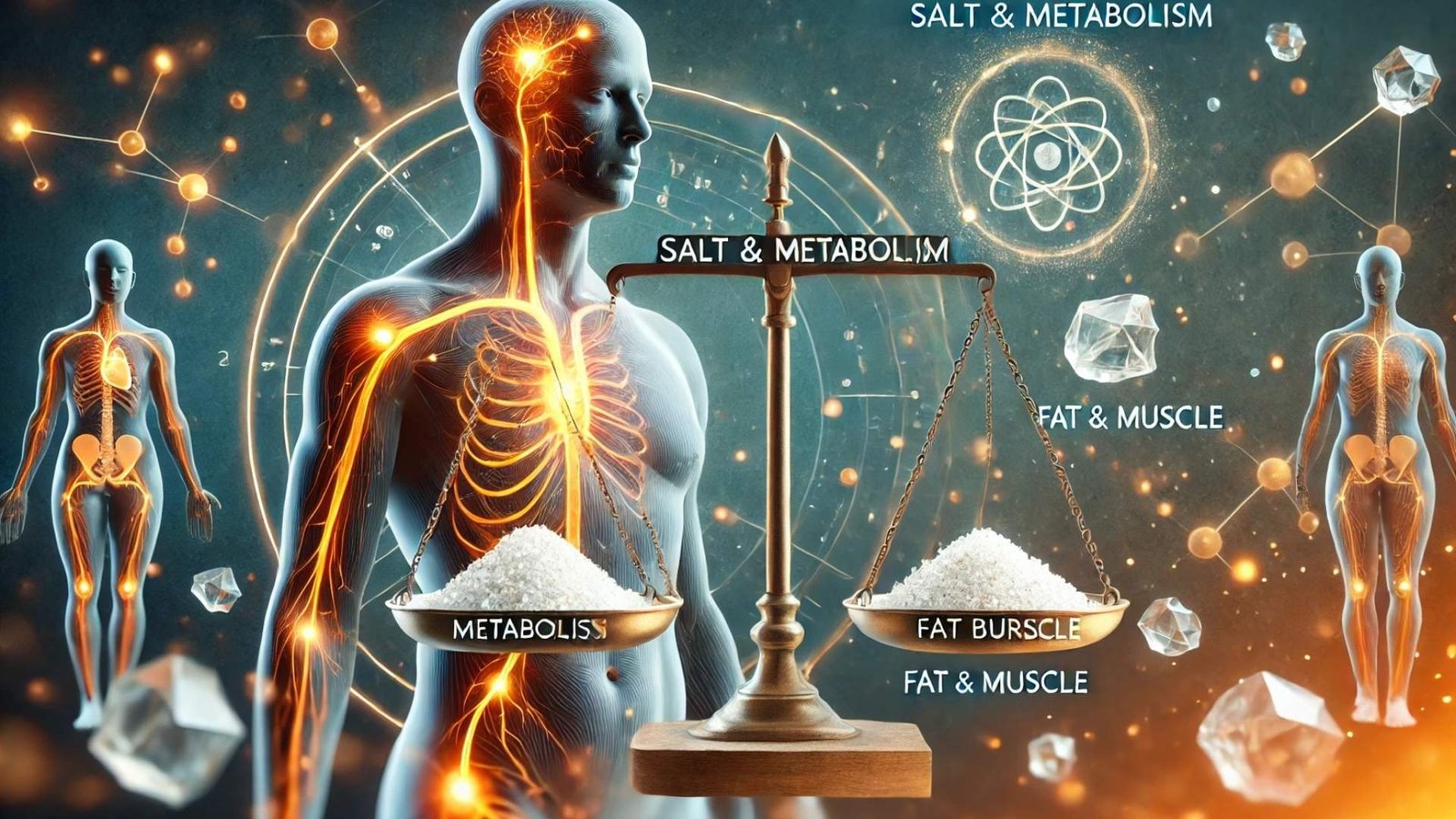The Salt Confusion: Friend or Foe?
Raise your hand if you’ve ever been told to cut back on salt! 🙋♀️
For decades, we’ve been bombarded with warnings that salt raises blood pressure, damages our hearts, and should be avoided at all costs. Many of us have dutifully switched to bland, low-sodium meals in an attempt to be “healthier.” But what if we’ve been getting it all wrong?
Surprise, surprise—restricting salt too much might actually be making it harder to burn fat and easier to gain weight. 😲 In fact, research is uncovering that salt plays a far more complex role in our metabolism, insulin regulation, and fat storage than we ever realized. So, should we rethink the low-salt advice? Let’s dig in.
Salt: More Than Just a Flavor Booster
Before we demonize salt, let’s remember that it’s essential for life. It’s not just a sprinkle that makes our fries taste better—it’s a key player in:
✅ Hydration – Without enough salt, our bodies struggle to retain water properly. Where salt goes, water follows!
✅ Nerve Function – Every thought, movement, and reaction in our bodies depends on electrical signals, which require sodium to function.
✅ Muscle Contraction – Ever had muscle cramps? That could be a sign of low electrolytes, including sodium.
✅ Nutrient Absorption – Sodium helps transport nutrients into our cells.
So, if we need salt for all these vital functions, why are we so afraid of it? The real issue isn’t salt itself—it’s how we regulate it in our bodies. And that brings us to a fascinating metabolic process you probably haven’t heard of.
The Science of Salt and Fat Burning
Meet the renin-angiotensin-aldosterone system (RAAS)—your body’s built-in salt manager. Sounds complicated? Don’t worry, here’s the simple version:
🔹 When sodium levels drop too low, your kidneys panic and release a hormone called renin.
🔹 Renin sets off a chain reaction that eventually leads to the release of aldosterone—a hormone that tells your body to hold onto sodium and water.
🔹 But here’s the kicker: aldosterone doesn’t just affect water balance—it also influences FAT STORAGE. 😳
Translation? When you restrict salt, your body shifts into a conservation mode, holding onto fat instead of burning it.
The Surprising Link Between Salt Restriction and Insulin Resistance
Now, let’s talk about insulin, the master hormone of metabolism. It controls how we process carbohydrates, store energy, and burn fat.
So, what happens when you cut back on salt? Studies show that low salt intake can actually increase insulin levels—which can lead to insulin resistance over time. And if you know anything about insulin resistance, you know it’s a key driver of:
🚨 Weight gain
🚨 Metabolic syndrome
🚨 Type 2 diabetes
🚨 Inflammation
Simply put, cutting salt can trigger a hormonal response that makes it harder for your body to handle carbs and burn fat efficiently. Instead of helping, it could be making things worse!
Fat Cells Love a Low-Salt Diet (And That’s Bad News!)
It gets even more interesting. Research shows that aldosterone and angiotensin II—two key players in salt regulation—have direct effects on fat cells.
⚡ Aldosterone stimulates the growth of new fat cells and makes existing fat cells bigger.
⚡ Angiotensin II promotes fat storage and inflammation.
So, when you restrict salt, your body ramps up these hormones, encouraging your fat cells to expand. Yikes.
Imagine this: You’re working out, eating “healthy,” avoiding salt, and wondering why the scale isn’t budging. Your body might be holding onto fat because it thinks it needs to compensate for low sodium levels. 🤯
The Big Irony: Can Salt Actually Help You Stay Lean?
Okay, before you go dousing everything in table salt, let’s be clear: this doesn’t mean eating excessive amounts of processed, sodium-laden junk food is good for you.
But moderate, natural salt intake—from sources like sea salt, Himalayan salt, and mineral-rich salts—could actually support a healthier metabolism, better hydration, and improved insulin sensitivity.
📌 Studies show that when people increase their salt intake (in a balanced way), insulin resistance improves and fat storage decreases.
📌 Some blood pressure medications (like angiotensin receptor blockers) have been found to reduce fat gain—not because they lower blood pressure, but because they block fat-promoting hormones.
In other words, we’ve been hyper-focused on blood pressure and salt, when in reality, metabolism and hormones might be the bigger picture.
Final Takeaway: Rethinking Salt for a Healthier You
So, should you eat more salt? Maybe! Here’s what you can do:
✔ Ditch the fear of natural salt. If you’re eating a whole-food diet, adding a bit of mineral-rich salt can actually be beneficial.
✔ Listen to your body. If you’re constantly thirsty, fatigued, or experiencing muscle cramps, you might need more sodium.
✔ Avoid extreme salt restriction. Instead of cutting salt drastically, aim for a balanced approach.
✔ Prioritize potassium-rich foods too. Foods like avocados, leafy greens, and bananas help maintain a healthy sodium-potassium balance.
At the end of the day, a one-size-fits-all low-salt diet might not be the answer—especially if your goal is to burn fat and stay metabolically healthy.
So next time you reach for the salt shaker, don’t feel guilty—your body just might thank you! 😉
FAQ: Your Salt & Metabolism Questions Answered
Won’t eating more salt raise my blood pressure?
Not necessarily! Recent studies show that for most people, salt intake has little to no effect on blood pressure unless you’re highly sensitive to sodium. The bigger issue is overall diet quality and insulin resistance.
What type of salt is best?
Go for natural, unprocessed salts like sea salt, Himalayan pink salt, or Redmond Real Salt. These contain trace minerals that support hydration and metabolism.
How much salt should I eat daily?
It depends on your activity level and diet. If you eat mostly whole, unprocessed foods, you might need more salt than someone who consumes lots of packaged foods.
Final Thoughts
Salt isn’t the enemy—it’s a crucial part of a balanced, healthy diet. Instead of fearing it, let’s learn how to use it wisely to support metabolism, fat burning, and overall health.
What are your thoughts on salt and metabolism? Have you noticed any changes when you increased or decreased your salt intake? Drop a comment below and let’s chat!

